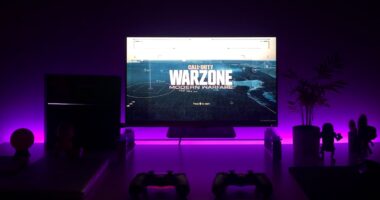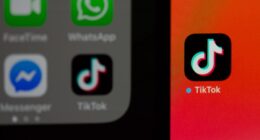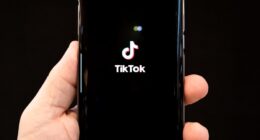In the ever-evolving landscape of the music industry, effective public relations (PR) strategies are essential for artists seeking to carve out their niche and connect with audiences. Music PR encompasses a wide array of activities designed to promote an artist’s work, enhance their visibility, and cultivate a positive public image. As the digital age continues to reshape how music is consumed and shared, the importance of a well-crafted PR strategy cannot be overstated.
Artists must navigate a complex web of platforms, audiences, and media outlets, all while maintaining their unique artistic identity. A successful PR strategy not only amplifies an artist’s voice but also fosters meaningful connections with fans and industry stakeholders alike. The foundation of any effective music PR strategy lies in understanding the target audience and the channels through which they engage with music.
This involves a deep dive into demographic data, listening habits, and social media trends. By identifying the right audience segments, artists can tailor their messaging and outreach efforts to resonate more deeply with potential fans. Furthermore, as competition intensifies in the music industry, artists must leverage innovative PR tactics that go beyond traditional methods.
This includes harnessing the power of digital marketing, influencer collaborations, and strategic partnerships that can elevate an artist’s profile in a crowded marketplace. Ultimately, a comprehensive approach to music PR not only enhances visibility but also builds a sustainable career for artists in an increasingly competitive environment.
Building a Strong Online Presence
In today’s digital-first world, establishing a robust online presence is paramount for any artist looking to succeed in the music industry. This begins with creating an engaging and visually appealing website that serves as a central hub for all things related to the artist. A well-designed website should include essential elements such as a biography, discography, tour dates, and links to social media profiles.
Additionally, incorporating high-quality visuals—such as professional photos and music videos—can significantly enhance the user experience and leave a lasting impression on visitors. By ensuring that their online presence is polished and professional, artists can effectively communicate their brand identity and artistic vision to potential fans and industry professionals alike. Beyond a dedicated website, artists must also prioritize their presence on various social media platforms.
Each platform offers unique opportunities for engagement and interaction with fans, making it crucial for artists to tailor their content accordingly. For instance, Instagram is ideal for sharing visually-driven content, while Twitter allows for real-time updates and conversations. By consistently posting engaging content—such as behind-the-scenes glimpses, live performances, or personal anecdotes—artists can foster a sense of community among their followers.
Moreover, utilizing analytics tools to track engagement metrics can provide valuable insights into what resonates with audiences, allowing artists to refine their strategies over time. In essence, building a strong online presence is not merely about visibility; it is about creating authentic connections that can translate into a loyal fanbase.
Creating Compelling Press Releases and EPKs

Crafting compelling press releases and Electronic Press Kits (EPKs) is a critical component of any successful music PR strategy. A press release serves as an official announcement that conveys important information about an artist’s new music, upcoming shows, or significant milestones. To capture the attention of journalists and media outlets, press releases must be well-structured and engaging from the outset.
This means starting with a captivating headline that succinctly summarizes the news while piquing interest. The body of the press release should provide essential details—such as the release date, background information about the project, and quotes from the artist—while maintaining a clear and concise narrative flow. An EPK complements the press release by providing a comprehensive overview of the artist’s work in a visually appealing format.
It typically includes high-resolution images, music samples, videos, and links to social media profiles—all designed to give media professionals a holistic view of the artist’s brand. When creating an EPK, it is essential to ensure that it reflects the artist’s unique style and personality while remaining professional in presentation. Additionally, including testimonials from industry figures or notable press coverage can lend credibility and further entice media outlets to feature the artist.
By investing time and effort into crafting compelling press releases and EPKs, artists can significantly increase their chances of gaining media attention and securing valuable coverage.
Utilizing Social Media and Influencer Marketing
In an age where social media dominates communication channels, leveraging these platforms effectively is crucial for artists aiming to expand their reach. Social media not only allows artists to share their music but also provides an avenue for direct interaction with fans. Engaging content—such as live Q&A sessions, interactive polls, or exclusive sneak peeks of upcoming projects—can foster a sense of community among followers while keeping them invested in the artist’s journey.
Moreover, artists should consider utilizing various formats available on these platforms, such as Stories on Instagram or TikTok videos, to showcase their creativity in diverse ways. By maintaining an active presence on social media, artists can cultivate a loyal fanbase that feels personally connected to their work. In addition to organic social media efforts, influencer marketing has emerged as a powerful tool for artists looking to amplify their message.
Collaborating with influencers who align with an artist’s brand can introduce their music to new audiences and enhance credibility within specific niches. This could involve influencers sharing tracks on their platforms or even participating in promotional events such as listening parties or live performances. The key is to identify influencers whose values resonate with the artist’s vision; authenticity is paramount in these partnerships.
By strategically utilizing social media and influencer marketing, artists can create buzz around their work while reaching potential fans who may not have discovered them otherwise.
Securing Media Coverage and Reviews
Securing media coverage and reviews is vital for artists seeking to establish credibility and gain exposure in the competitive music landscape. To achieve this goal, artists must proactively reach out to journalists, bloggers, and music critics who cover their genre or style of music. Crafting personalized pitches that highlight what makes their music unique can significantly increase the likelihood of garnering attention from these media professionals.
It is essential to research each outlet thoroughly to understand their audience and tailor pitches accordingly; this demonstrates respect for the journalist’s work while showcasing the artist’s commitment to building relationships within the industry. Once coverage is secured, artists should be prepared to engage with media representatives by providing additional materials or interviews as needed. Positive reviews from reputable sources can serve as powerful endorsements that enhance an artist’s reputation and attract new listeners.
Furthermore, artists should not shy away from sharing these reviews across their own platforms; doing so not only showcases their achievements but also reinforces their credibility in the eyes of potential fans. By actively pursuing media coverage and fostering relationships with journalists, artists can create a ripple effect that amplifies their visibility and solidifies their standing within the music community.
Networking and Relationship Building with Industry Professionals

Building Relationships and Opening Doors
Building relationships with industry professionals, such as producers, booking agents, venue owners, and fellow musicians, is crucial for navigating the music industry successfully. These connections can open doors to new opportunities that may otherwise remain inaccessible. Attending industry events like conferences, showcases, or festivals provides invaluable chances for artists to connect with key players in person.
Authentic Connections and Long-Term Relationships
These interactions can lead to collaborations, performance opportunities, or even mentorship relationships that can significantly impact an artist’s career trajectory. The key is to approach networking with authenticity; genuine connections often yield more fruitful results than superficial exchanges. Moreover, maintaining these relationships over time is equally important as establishing them initially.
Nurturing Relationships and Fostering Goodwill
Following up after meetings or events with personalized messages expressing gratitude or sharing updates on one’s work can help solidify these connections. Additionally, supporting fellow artists by attending their shows or promoting their projects fosters goodwill within the community and encourages reciprocity down the line. In an industry where reputation matters immensely, cultivating strong relationships with industry professionals can provide artists with invaluable support systems that contribute to long-term success.
Implementing Tour and Event Promotion
Touring remains one of the most effective ways for artists to connect with fans while generating revenue through live performances. However, successful tour promotion requires meticulous planning and execution across multiple channels. Artists should begin by developing a comprehensive marketing strategy that outlines key objectives—such as ticket sales targets—and identifies target audiences for each show.
Utilizing email newsletters to inform existing fans about upcoming tour dates is essential; this direct line of communication ensures that loyal supporters are among the first to know about new opportunities to see their favorite artists live. In addition to traditional marketing methods like posters or flyers, leveraging social media platforms for tour promotion is crucial in reaching wider audiences. Engaging content—such as countdowns to show dates or behind-the-scenes footage from rehearsals—can generate excitement among fans leading up to each performance.
Collaborating with local influencers or partnering with other artists on joint shows can also expand reach within specific markets. Ultimately, effective tour promotion hinges on creating buzz around each event while ensuring that fans feel valued throughout the process; this fosters loyalty that extends beyond individual shows into lasting support for an artist’s career overall. In conclusion, navigating the complexities of music PR requires a multifaceted approach that encompasses various strategies aimed at building visibility and fostering connections within the industry.
From establishing a strong online presence to securing media coverage and implementing effective tour promotion tactics, each element plays a crucial role in shaping an artist’s career trajectory. By embracing innovative methods while remaining authentic in their outreach efforts, artists can cultivate meaningful relationships with fans and industry professionals alike—ultimately paving the way for long-term success in an ever-changing musical landscape.
For artists and bands looking to dive deeper into effective music PR strategies, a related article worth exploring is available on the Music Marketing Digital website. This article provides insightful tips and strategies that can help musicians enhance their public relations efforts, ensuring their music reaches the right audience. You can read more about these strategies by visiting Understanding Music PR Strategies for Artists and Bands. This resource is particularly useful for those new to the music industry or looking to refine their existing PR tactics.
FAQs
What is music PR?
Music PR, or music public relations, is the practice of managing the spread of information between an individual or organization and the public, with the goal of creating and maintaining a positive public image.
What are some music PR strategies for artists and bands?
Some music PR strategies for artists and bands include creating a strong online presence, building relationships with media outlets and influencers, organizing events and performances, and utilizing social media and digital marketing.
Why is music PR important for artists and bands?
Music PR is important for artists and bands because it helps them to build and maintain a positive public image, increase their visibility and reach, and ultimately grow their fan base and career opportunities.
How can artists and bands measure the success of their music PR strategies?
Artists and bands can measure the success of their music PR strategies by tracking metrics such as media coverage, social media engagement, website traffic, and ticket or music sales. They can also gather feedback from fans and industry professionals.









